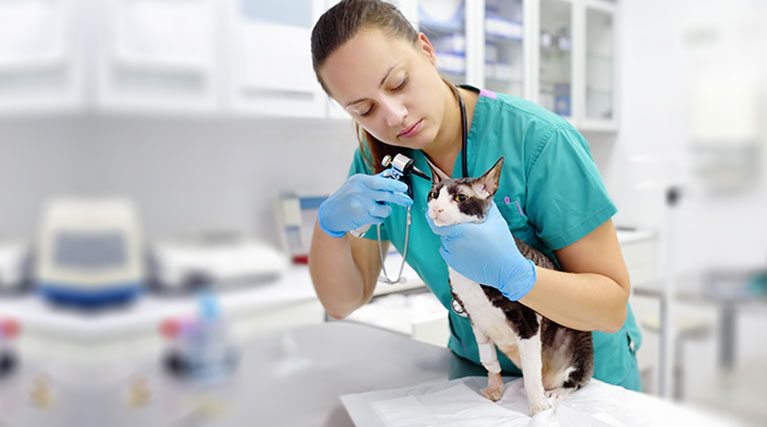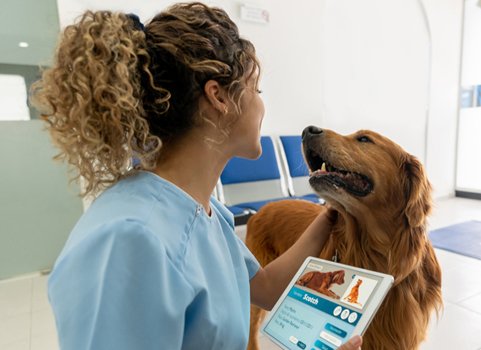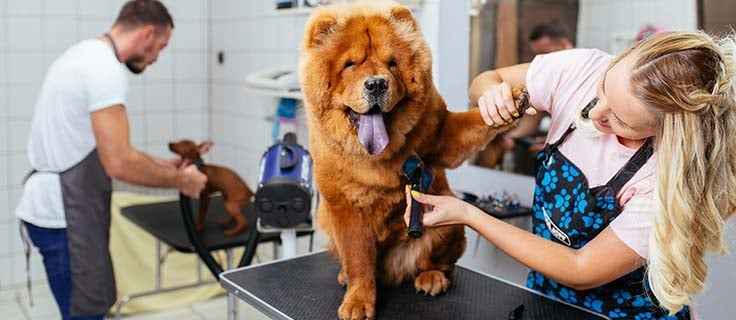What's the difference between a veterinary technologist and a veterinary technician?
Generally, the difference between a veterinary technician and a veterinary technologist is the level of education and experience each have. While vet techs and vet technologists - sometimes referred to as veterinary technician specialists - work together and perform many similar tasks, technologists are empowered to do more in-depth work and can even decide to specialize in a particular veterinary health field, such as oncology.
What is the salary for a veterinary technology role?
Veterinary technologists have a median salary of $43,740 per year, and job growth is projected to increase much faster than average in the next several years.*
What can I do with a Veterinary Technology Bachelor of Applied Science Degree?
Licensed vet technologists can apply for positions in various environments such as small and large animal hospitals, biomedical research, military service, food safety inspection, zoo and wildlife care, veterinary supply stores, and more!
How much does a Veterinary Technology Bachelor of Applied Science Degree cost?
Tuition costs up to $107 per credit, with the semester fee adjusting slightly based on our current offer. Visit our tuition page for the most current tuition information.
Is the veterinary technology degree accredited?
Penn Foster's Veterinary Technology Bachelor of Applied Science Degree program has full accreditation with the American Veterinary Medical Association (AVMA) through their Committee on Veterinary Technician Education and Activities (CVTEA). Additionally, Penn Foster is nationally accredited by the Distance Education Accrediting Commission (DEAC).
What veterinary technology skills will I learn in this degree program?
Skills covered in the Veterinary Technology Bachelor of Applied Science Degree Program include fundamentals of veterinary pharmacology, nursing of domestic animal species, animal anesthesia, surgical nursing, laboratory procedures, research in vet technology, preventative health care, veterinary emergency & critical care, and other veterinary basics. College-level courses also build a well-rounded skill set in areas such as computer and information literacy, written and interpersonal skills, humanities, liberal arts, math, and sciences.











